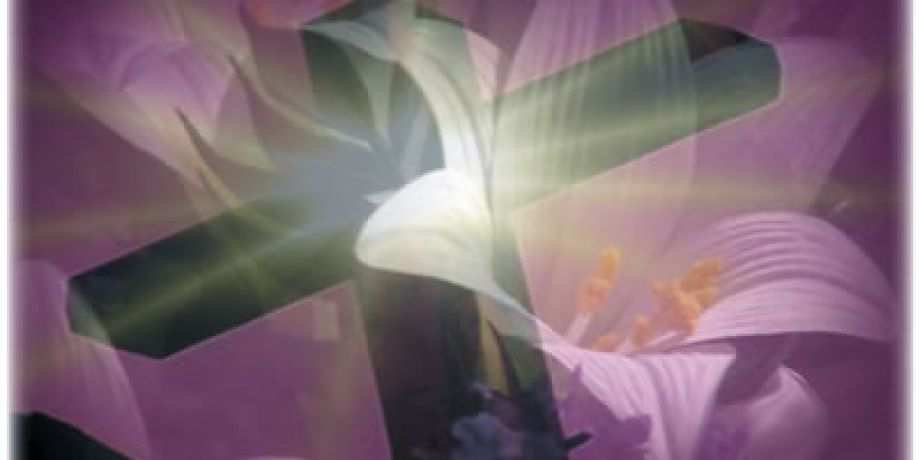
Great Expectations
Our hope was that he would be the one to set Israel free. (Lk. 24)
During the 1980s, great expectations abounded in the member states of what was then the European Community. We were told that just over the horizon a new European structure was emerging that would leave behind a Europe pock-marked with war. It was to be the European Union. There was feverish activity at conferences discussing new arrangements in regard to free movement of people, a social charter, free trade, customs unions, agricultural policies, security and a free market within the then member states. Common policies dealing with all issues were to be rolled out to generate a European economy that could compete with other global blocs. It seemed that old Europe of toxic nationalism, tension and conflict would at last be responsive to the aspirations of European peoples for a peaceful, progressive and dignified future underpinned by rights.

At conferences dealing with migration and other social issues it was evident that European economies depended on immigrants. The attendance profile at these conferences mirrored European colonial history and demographic deficit. Post-war Europe decimated by war casualties needed immigrants to staff the labor markets. In the past the colonizers took the natural wealth of the colonies. This time they took the human resources setting back the development of newly independent states. The profile of Europe attending these conferences was truly a salad bowl of cultures in the process of integration with European society. Racism and how to combat it was a prominent concern in all discussions. However, there was great hope that proper safeguards, equality legislation, the rule of law and access to the legal systems would minimize this scourge over time.
All in all, a vibrant hope that a new European world was emerging pervaded the atmosphere not just in conferences such as these but also in the media and various political networks throughout Europe. Of course, there were the critics of what was to be born. Common trade policies silenced those voices most of whom were nostalgic about the loss of what they perceived as glorious colonial pasts. Immigration and the presence of their former colonized subjects on European streets made them feel uncomfortable in spite of their economies needing them. Globalism became an irresistible force, walls were shattered and people power brought to rubble cold war structures that political leaders having initially instigated were hesitant to welcome.
As all these events ushered in new horizons of understanding, there was hope for a tolerant Europe. Europeans in this new world would meet each other under a common umbrella. Having finished my appointment in the Irish Emigrant Chaplaincy I took up an appointment in Jamaica in the belief that European integration and inclusivity would proceed at a pace. I expected that this fantastic political project inspired by its founders and worked on by visionaries would be an example for a better world. I left with a comfortable feeling that great progress was taking place in Europe. I assumed that there would be a common immigration policy in the European Union as there seemed to be in regard to everything else. Animals were protected. Even the quality of bananas was regulated.
On my return in 1999, I discovered a different, forward-looking, energetic, confident Ireland. Great changes had and were taking place. There were high hopes for peace in Northern Ireland. European Union investment was showing results in the Irish landscape. But, there was no common policy on immigration. I was surprised to hear and read about anti-immigrant sentiments. The general tenets defining globalized free trade and the movement of investment immigration was left to individual state policies.
Surprise, surprise — Ireland was no longer an emigrant nation! Immigrants were arriving in Ireland from all parts of the world. Visiting my aged mother in a retirement home unwittingly I asked the Filipino caregiver about Mrs. Gilmore. She responded in Cebuano, "natulog pa" (she is asleep). Coming to my senses, I became aware the caregiver was from the same area of the Philippines where I had worked. Her response told me that I was in a different Ireland. Foolishly, I assumed given our history of emigration we would be a welcoming destination for immigrants. I expected that Irish people would wish for immigrants in Ireland what Irish people wished for their immigrants around the world.
I was offered the opportunity to give lectures around Ireland on migration, asylum and refugees. Having conducted similar lectures around Ireland from 1978-92 on Irish migration I assumed I would get a sympathetic reaction to immigrants in Ireland. I hoped in that in 1999 and the 2000s there would be some understanding, empathy and a welcoming atmosphere for immigrants in Ireland. As I traveled around Ireland, to my dismay, I discovered that the anti-immigrant sentiments I was reading and hearing about, in a significant number of instances were real.
Even if general attitudes towards immigrants were welcoming, tolerant and respectful, the resentment of a minority of both adults and students was disappointing and worrying.
Worrying in the sense if an emigrant state like Ireland was so negative towards outsiders, what would be the attitudes in EU Member States having anti-immigrant intolerant histories towards minorities? A question swirling in my mind was, had the offices of European Union done its work on population, immigration, appropriate education and integration? Obviously, it hadn't. Worse still, as time went on I had an anxiety that immigration could become the Achilles heel of the European Union.
I began to feel like the flustered duo on the road to Emmaus. So much had been promised by the European Union, so little achieved at a human protective tolerant level for vulnerable people on a journey of hope. At each accession stage admitting new member states media outlets drummed age-old xenophobic storms about immigrants taking jobs, housing, clogging health and education services, prisons, welfare tourists and scroungers. The seeds of nativist weeds, dormant for more than seventy years in Europe, got new moisture. Racist shoots began to creep out of the cracks.
As I traveled around I discovered goodwill towards immigrants while welcome was inadequate. Information and support systems were needed to enable immigrants to be subjects of their own destiny contributing to and benefiting from their efforts to integrate and belong. If Irish emigrants needed support systems abroad, immigrants in Ireland needed similar beacons on the Irish skyline.
Making my way around Ireland speaking to students and adult groups I felt anguished about a political project, European Union, that promised so much but at a human relationship level delivered so little on one of its pillars; the free movement of people and the human services needed for such movement. While I enjoyed interacting with people on migration issues I felt drained by the anguish of a frail ideal-the European Union.
Caught in a trough between the anguish of a fragmenting past and anxiety of an uncertain future I decided to share my concerns with a few like-minded friends. To my surprise they were thinking along similar lines. They were imagining a different future emerging. In their musings and from the research at hand, Ireland, Europe and the world were facing a future in which immigration and the movement of people internationally was to be a new constant, a new diverse energetic global force that could not be stopped, was here to stay, needed to be welcomed, managed and supported.
Like the anguished disciples on the way to Emmaus looking over their shoulders trying to make sense of shredded hope a new sound began to squat in my tinnitus space. It was saying; do something constructive about it. What emerged with clear motivation was the need for an agency whose aim was to match the hope in the eyes of immigrants in Ireland so they could say with confidence in the words of the song, New York, New York; if I can make it here I can make it anywhere. The Migrant Rights Center Ireland bypassed Emmaus.
Thankfully, I was able to identify with a part of myself that had the energy to stretch beyond what I knew and the faith to let go of previous certainties so that something new could emerge. Like the two disciples, I was challenged to look forward in hope, rather than be consumed with the disappointment of an unfulfilled ideal. It seems development is resurrectional in that for some new energy to emerge there has to be a passing of previous shredded hopes. Easter is present in many everyday guises!
Columban Fr. Bobby Gilmore lives and works in Ireland.